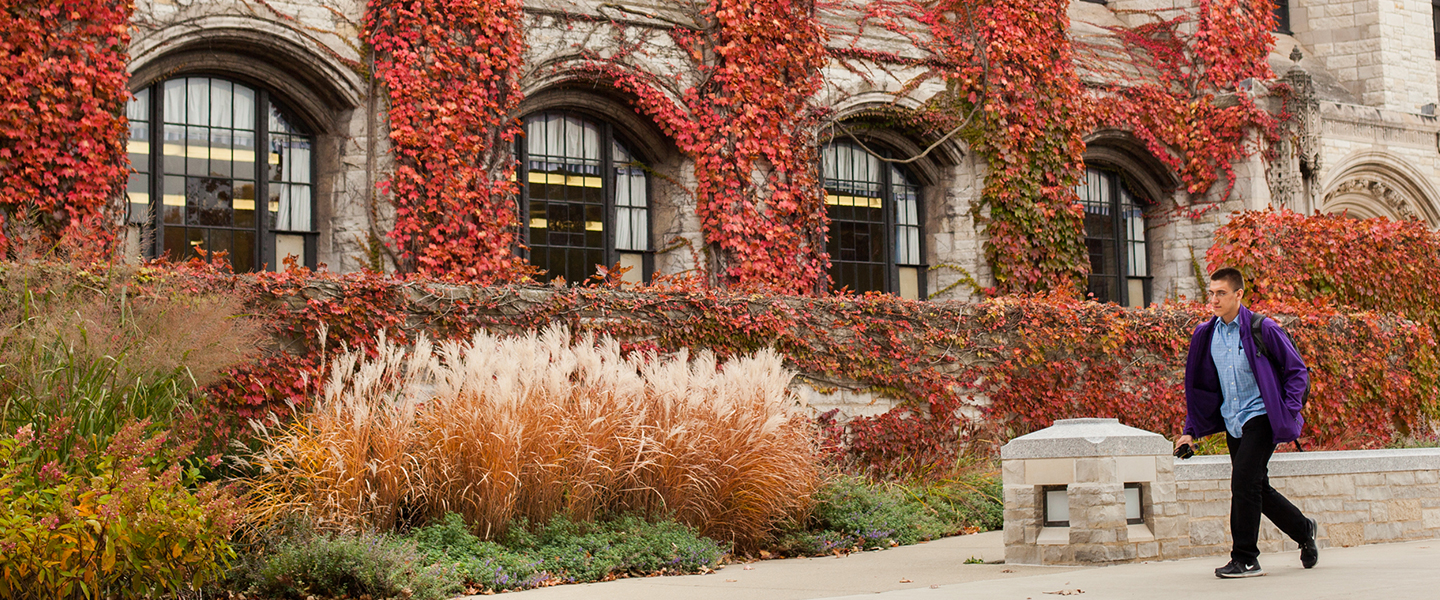Fall 2019 Message from Dean Woodruff
During the current academic year, TGS will focus on the well-being of graduate students, postdoctoral trainees, and our larger TGS community. ”
Teresa K. Woodruff ’89 PhD
Dean, The Graduate School and Associate Provost for Graduate Education
Dear Members of The Graduate School Community:
Welcome to the start of a new academic year! There is great excitement in the air as current master’s and doctoral students, postdoctoral trainees, and The Graduate School (TGS) faculty and staff welcome our newest students to our beautiful campuses. Each one of you is a valued member of our academic family and I look forward to seeing your colleague network expand.
Strategic Plan Update
The first bit of news is that TGS has a brand new look! Our redesigned website launched this week to help you better navigate the people and services you need. Integrated into our website is our new online academic catalog, which provides descriptions of all graduate level courses, academic policies and procedures, and degree requirements for all of our programs. I am also pleased to introduce a new Postdoctoral Affairs website. This website is tailored to our large postdoctoral community and provides information and resources for prospective and current postdoctoral trainees.
These initiatives were part of Vision 2025, our strategic plan for graduate and postdoctoral excellence at Northwestern. Throughout the past year, we also focused on a more concentrated alumni outreach, launched a diversity and inclusion advisory council, and expedited our financial decision timelineto benefit the schools and programs we support. These structural changes are building a stronger foundation for graduate education.
During the current academic year, TGS will focus on the well-being of graduate students, postdoctoral trainees, and our larger TGS community. While this is an ever-present focus for The Graduate School and the University, it is also a strategic priority for the 2019-20 academic year.
The term "well-being" encompasses overall health, happiness, and prosperity. It is affected by many aspects of one's life. To reflect on this multi-faceted nature, The Graduate School has aligned our definition of well-being with Northwestern's Health Promotion and Wellness (HPaW) to include the following eight dimensions:
- Emotional
- Environmental
- Financial
- Intellectual
- Physical
- Social
- Spiritual
- Vocational
This academic year will be a time for The Graduate School to assess well-being initiatives and integrate well-being into everything we do. The categories of well-being are porous and interwoven, and we will pay special attention to aspects that are distinct to the graduate and postdoctoral experience, such as feelings of belonging, mentor/mentee relationships, academic and intellectual opportunities, professional development, etc.
Our Year of Well-Being will focus on five core initiatives:
- Convene a TGS well-being advisory council to consider specific graduate and postdoctoral opportunities related to well-being;
- Inform constituents of well-being resources and best practices by highlighting on-campus resources and programs for a different dimension of well-being each month;
- Recognize and develop mentoring by rewarding excellent mentors and piloting a mentor training program for training grant program directors and graduate faculty;
- Standardize medical leave of absence (MLOA) policies, funding, and awareness to ensure clear criteria and processes;
- Pilot a mental health first aid program to give directors of graduate studies and graduate student organization leaders the skills needed to provide initial help and support to someone who may be developing a mental health or substance use problem or experiencing a crisis.
The Graduate School will focus on the efforts outlined above to shift paradigms while continuing to acknowledge and consider long-term ways to address this important topic. We will keep you posted on our progress throughout the year ahead and look forward to your participation and feedback.
University Updates
One of the ways we support you is by aligning our strategic focus with the priorities of the University. Throughout the 2019-20 academic year, the University will be emphasizing our shared core values and recognizing the strength in our diversity as a central aspect to education at Northwestern.
Some of the University's key focuses that pertain to our graduate community include the Black House Renovation Project, exploring implementation of the recommendations from the Gender-Queer, Non-Binary, Transgender Support Task Force, identifying areas of improvement from the Student Climate Survey for Diversity, and launching a Task Force on Student Well-Being.
In addition to these initiatives, this academic year marks 150 Years of Women at Northwestern, a community I am very proud to be a member of as an alumna, faculty member, and dean and associate provost. A series of events will take place throughout the year to celebrate our many historical and contemporary catalysts who take risks, chart their own course, and inspire change.
As faculty co-chair for One Book One Northwestern, I also encourage our graduate community to take part in this valuable program. One Book One Northwestern fosters a sense of community across Northwestern through the many events and activities that you can participate in or create. This year's selection, Hidden Figures, by Margot Lee Shetterly provides an opportunity to reflect on the lives of NASA mathematicians and engineers, whose personal passion and national pride helped drive innovation and advance this country's global position in space exploration. Please visit the One Book One Northwestern website for a list of ways to participate.
I wish you all a successful start to the academic year and continuation of your research, creation, invention, teaching, learning, and living. The Graduate School is here to support you and my door is always open.
My best!
Teresa
Teresa K. Woodruff ’89 PhD
Dean, The Graduate School and
Associate Provost for Graduate Education
Northwestern University
The Watkins Professor of
Obstetrics and Gynecology
Feinberg School of Medicine
Categories: From the Dean
